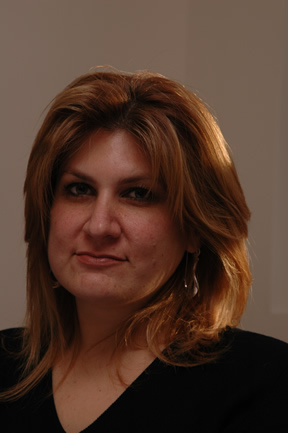Wellesley College Professor Roxanne Euben Discusses
Islamic Thought and Western Political Theory
FOR IMMEDIATE RELEASE:
Feb. 2, 2010 |
|
WELLESLEY,
Mass.— Wherever she goes, Wellesley College political scientist Roxanne Euben is asked the same question: Why on earth did you choose to study Western political theory and Islamic political thought?
 |
Wellesley's Roxanne Euben will give the lecture, "Politics after the Fact: Uncertain Times, Unfinished Answers" Feb. 10. |
“This sounds like a small and easy question, but it's harder to answer than it may seem," Euben says. "This is partly because political theory is often regarded as the study of 'dead white guys from the West' — so how could it possibly be relevant to our politics and lives today? It's also because the events of 9/11 have triggered an increasingly loud chorus of voices who insist that while Western political theory is about critical reflection, Islam does little else but encourage unquestioning religious extremism — and worse."
These assumptions make the study of Western political theory and Islamic political thought an essential undertaking, she says.
Euben will further address these questions during the distinguished faculty lecture, "Politics after the Fact: Uncertain Times, Unfinished Answers," Wednesday, Feb. 10, at 12:30 pm in Pendleton West 212. The lecture, sponsored by the Office of the President of Wellesley College, is free and open to the public.
During the talk, Euben will discuss how and why she came to study political theory and Islamic political thought, and how the events of 9/11 changed the context for, and the reception of, her work on Islamist political thought.
Euben is the Ralph Emerson and Alice Freeman Palmer professor of political science and chair of the department. Her research and teaching is on Western and non-Western political theory – a newly emerging field called comparative political theory – with a focus on the relationship between Islamic and Western political thought. She is the author of Princeton Readings in Islamist Thought: Texts and Contexts from al-Banna to Bin Laden (Princeton University Press, November 2009), Journeys to the Other Shore: Muslim and Western Travelers in Search Of Knowledge (Princeton University Press, 2006) and Enemy in the Mirror: Islamic Fundamentalism and the Limits of Modern Rationalism (Princeton University Press, 1999). Euben has been awarded a fellowship from the American Council of Learned Societies, a fellowship at the Radcliffe Institute for Advanced Study at Harvard University and the Pinanski Prize for Excellence in Teaching at Wellesley.
Since 1875, Wellesley College has been a leader in providing an excellent liberal arts education for women who will make a difference in the world. Its 500-acre campus near Boston is home to 2,300 undergraduate students from all 50 states and 75 countries.
###
|

